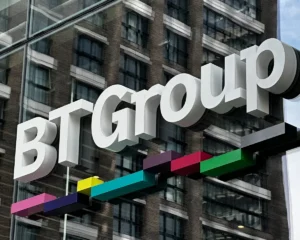https://theworldfinancialforum.com/participate/

BT is weighing up a potential takeover of the rival telecoms and broadband company TalkTalk, which is struggling amid financial difficulties and a customer exodus.
The UK’s biggest broadband provider is understood to have discussed the strategic possibility of buying TalkTalk. However, it is understood no approach has been made and no talks have been held and bankers have not been asked to draw up takeover plans.
TalkTalk, which was founded by Sir Charles Dunstone, is the UK’s fourth-largest telecoms group, with about 3.2 million customers. However, the group lost 400,000 customers in the 12 months to February, and last year Dunstone and other shareholders were forced to inject £235m to shore up its finances.
TalkTalk has struggled since it was taken private by Toscafund, a London-based investment firm, in a £1.1bn leveraged buyout that added £527mn of debt to the telecoms group’s balance sheet in 2021. It now has about £1.2bn in debt on its balance sheet.
A BT-TalkTalk tie-up would give the combined group control of about 36% of the UK broadband market.
“Companies are always looking at rivals in their sector, particularly distressed assets,” said one City source, discussing the potential takeover plans, which were first reported by the Telegraph.
In recent weeks, it has emerged that TalkTalk has fallen behind on payments with supplies and partners including Openreach and CityFibre. According to estimates from New Street Research, TalkTalk pays its broadband suppliers more than £60m each month.
The Salford-based company cut 350 jobs last year as part of a wider plan to strip £120m out of the business. If a takeover offer from BT were to crystallise, it could face objections from rivals and an investigation from the UK competition regulator.
“It would be an understatement to say that TalkTalk faces a difficult and uncertain future,” said James Ratzer, an analyst at New Street Research. “This is clearly an extremely high-risk investment. Past discussions have largely focused on Vodafone and VMO2 [Virgin Media O2] … but we now believe BT could enter the fray in some potential form increasing the chance of a potential deal.”
after newsletter promotion
Virgin Media O2 has also previously considered making an approach for TalkTalk.
BT and TalkTalk declined to comment.
The UK telecommunications landscape could be on the verge of a major shake-up, as BT Group is reportedly weighing a takeover bid for rival internet service provider (ISP) TalkTalk. The move, if it materializes, would mark a significant consolidation in the broadband market, reflecting the intense pressure operators face amid rising infrastructure costs, fierce competition, and shifting consumer expectations.
A Lifeline for TalkTalk?
TalkTalk, once a prominent challenger brand in the UK telecoms space, has struggled in recent years with falling customer numbers, low margins, and increasing operational costs. Its budget positioning, while initially successful in attracting cost-conscious customers, has left it vulnerable as the market pivots towards fibre-based services and bundled offerings.
The company was taken private in 2021 in a £1.1 billion deal by Toscafund, a hedge fund with a history of investing in undervalued assets. Since then, TalkTalk has attempted to streamline operations and reposition itself, but it remains burdened with significant debt and faces growing competition from aggressive fibre rollouts by newer players like CityFibre and Hyperoptic.
For BT, acquiring TalkTalk could offer a quick way to bolster its customer base and defend market share, particularly in the face of emerging threats from low-cost, full-fibre challengers. But the move also comes with risks — namely TalkTalk’s ageing infrastructure, regulatory hurdles, and the task of integrating a business with a very different corporate culture.
Why Now?
There are several reasons why a takeover could make sense for BT at this moment:
Market Pressure: The UK broadband market is more competitive than ever. Virgin Media O2 is aggressively expanding its fibre network, and a raft of alt-nets (alternative network providers) are undercutting incumbents on price. Consolidation may be the only path to sustained profitability for larger players like BT.
Fibre Transition: Both BT (via Openreach) and TalkTalk have been investing in fibre infrastructure, though BT is far ahead. Absorbing TalkTalk’s customer base could help BT migrate more users onto its full-fibre platform more efficiently.
Regulatory Landscape: While regulators like Ofcom have traditionally been wary of large telco mergers, the tone has shifted slightly. With financial stability and network investment now top priorities, a merger that strengthens BT’s long-term viability could gain regulatory support — especially if consumer choice and pricing remain protected.
What’s at Stake?
For consumers, a BT-TalkTalk merger could mean fewer choices in the short term, but potentially more reliable services and faster access to full-fibre broadband. For employees at TalkTalk, the outlook is less certain, as such mergers often result in restructuring and job cuts to remove overlaps.
Investors, meanwhile, will be watching closely. BT’s share price has been under pressure due to concerns about debt, dividend cuts, and future growth. A well-executed acquisition could restore confidence — but a messy integration or regulatory backlash could have the opposite effect.
Industry Implications
If the deal goes through, it could trigger a wave of consolidation across the UK telecoms industry. Smaller ISPs may seek mergers or exits, while mid-sized players like Vodafone UK and Three — themselves involved in a proposed merger — will reassess their strategies. Alt-nets could either benefit from reduced competition or face more pressure as scale becomes the defining factor in broadband success.
Final Thoughts
BT’s potential acquisition of TalkTalk underscores the challenges — and opportunities — in today’s telecoms industry. As infrastructure demands grow and competition intensifies, size and efficiency increasingly determine success. Whether this potential deal signals a bold strategic pivot or a risky gamble remains to be seen, but one thing is clear: the UK broadband market is entering a new era, and consolidation may be the key to survival.